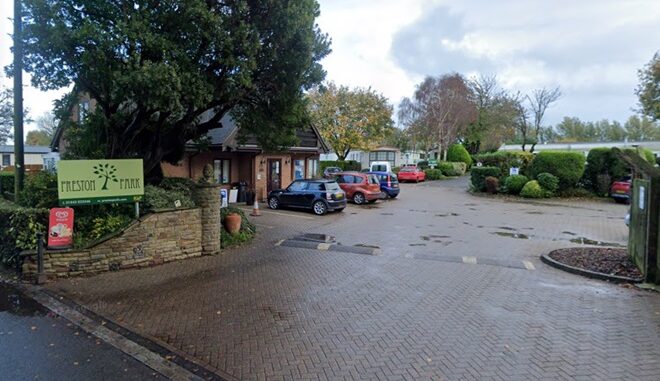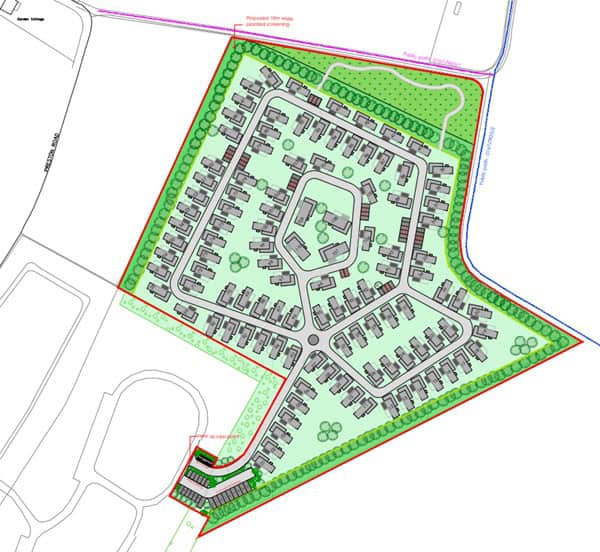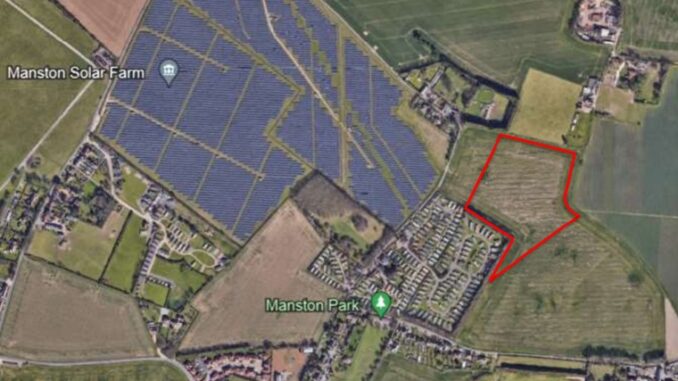
An application for a 110 caravan expansion on farmland for Preston Park in Manston has been refused by councillors.
Members of the planning committee rejected council officer advice to approve the scheme and instead refused the application over concerns of the impact on the countryside and the loss of Grade 2 agricultural land.
The application was made by park owners Kent Leisure Parks Ltd. There are currently 202 statics on site although the park is licensed for up to 236.
Kent Leisure Parks asked for a change of use of adjacent agricultural land to accommodate 110 caravans and associated parking, bin stores, hardscaping and landscaping.
But councillors on the planning committee raised concerns over the loss of the land, as well as worries about over-development, congestion on Preston Road and Spratling Street and the risk to pedestrians and cyclists from increased traffic.
Speaking at the meeting planning consultant John Elvidge said the proposal would not have an adverse impact on the countryside or be harmful to road safety but would bring in economic benefits through tourism business.

Resident Graham Elliot spoke against the application saying it was a 54% increase in the number of caravans on site and there would be a correlating increase in vehicles needing to be parked as well as a loss of green space in the village.
He also highlighted development of some 1,000 properties already under way at sites in and around Manston.
Manston Parish Council chairman Cllr Guy Wilson also spoke out against the expansion plan saying the park already had a successful business and good income and there was no need to expand.
District councillor Sam Bambridge said if additional parking spaces inside the park could be provided to combat on-street parking she would have no objection to the proposal while Cllr Steve Albon and Cllr Jill Bayford acknowledged the employment and economic benefits.

However, the issue of the loss of agricultural land was raised by members including Cllr Mike Garner who said there would need to be a significant benefit to outweigh the loss of land.
He said: “The main issue for me is this application would result in a significant loss of agricultural land and significant harm to the countryside. For us to consider approving this there would need to be demonstrably significant benefits to justify us doing that.”
Cllr Garner said he could not see such benefits and that he thought there was no choice but to refuse the plans.
It was noted that the expansion site is not listed in Thanet’s Local Plan for development, unlike many housing developments where allocated land means refusal would likely end in the council losing at appeal.
Questions were also raised about whether those using the caravans/static homes would be holidaymakers or permanent residents as the site is open all year around.
Planning boss Iain Livingstone said there were measures in place to stipulate the site was not used as a primary address but admitted that would “require checking and managing and the resources to do that.”
The development was proposed to be undertaken in a series of five phases, according to the demand generated for the units, and implemented over the course of a number of years.
In documents lodged on behalf of Kent Leisure Parks it said the expansion, which would have soft landscaping screens and a wildflower meadow landscape buffer,would lead to four full-time and two part-time additional staff alongside the existing six full-time and two part-time roles and will bring money into the rural economy.

The proposal also highlighted policy in Thanet’s Local Plan that: “aims to accommodate inward investment in job creating development through, inter alia, the expansion and diversification of existing firms. In particular, new tourism development, which would extend or upgrade the range of tourist facilities, particularly those that attract the staying visitor, increase the attraction of tourists to the area and extend the season.”
The council planning officer had recommended approval for reasons including: “The development would provide up to 110 caravans for tourism which in turn would provide visitors who in turn would help to sustain key community facilities.
“In addition it would provide cultural exchange between guests and hosts and could preserve local festivals and events by attracting tourists.”
However, the planning committee last week rejected the proposal on the grounds of the resulting loss of countryside and the irreversible loss of best and most versatile agricultural land, adding: “The proposal has failed to demonstrate that the benefits of the proposal would outweigh the harm.”
In 2002 a planning application was submitted for an extension to the eastern side of the main caravan park to accommodate 64 static caravans but planning consent was refused on the grounds including an undesirable over-intensification of the existing commercial use of the site.
An appeal was lodged and planning was allowed in July 2003.

